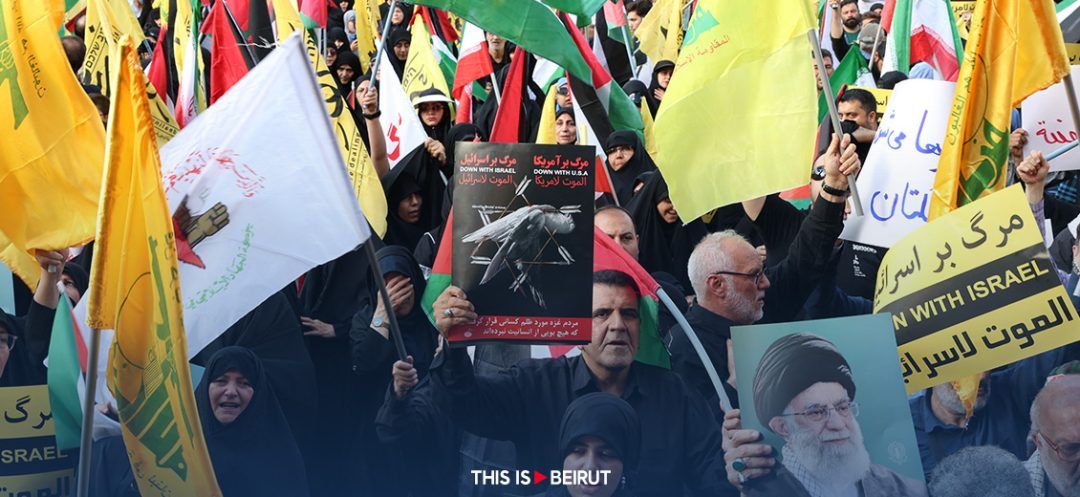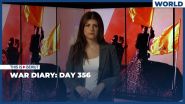- Home
- War in the Middle East
- Iran Still Backing Hezbollah, but Avoids Going to War

©(AFP)
As violence between Israel and Hezbollah escalates, Iran is walking a tightrope by supporting Hezbollah without being dragged into a full-blown conflict and playing into its enemy's hands.
With a focus on easing its isolation and reviving its battered economy, Iran is aware that war could complicate efforts to secure relief from crippling sanctions.
Despite the surge in hostilities, Iran appears determined to avoid direct military confrontation.
"Iran is not going to be pulled into war," said Hamid Gholamzadeh, an Iran-based political expert.
Ali Vaez of the International Crisis Group said Iran's strategy was to project power, without directly engaging, especially as escalation could benefit Israel and impact the US election.
"Iran does not want to play into its arch-enemy's hands," said Vaez, noting Iran's priority was securing sanctions relief and some economic stability.
Even during its first-ever direct attack on Israel in April, in retaliation for an airstrike on Tehran's embassy annex in Damascus, most missiles were intercepted by Israel's defenses or allied forces.
Measured Approach
In New York, Iranian President Masoud Pezeshkian accused Israel of warmongering while positioning the Islamic republic as restrained.
He suggested Iran had held back retaliation after the killing of Hamas chief Ismail Haniyeh in Tehran in July, fearing it could derail US efforts for a Gaza ceasefire.
"We tried to not respond. They kept telling us we were within reach of peace, perhaps in a week or so," he said.
"But we never reached that elusive peace. Every day Israel is committing more atrocities."
Analysts say Iran is flexing its muscles amid the Israel-Hamas war in Gaza, without provoking a US response.
[readmore url = "https://thisisbeirut.com.lb/world/289240"]
Vaez said any Iranian escalation could strengthen Israeli Prime Minister Benjamin Netanyahu and even possibly help Trump return to power.
This "would be highly detrimental for Iranian interests," he said.
'Dangerous Consequences'
Despite its restraint, Iran continues to back Hezbollah. Foreign Minister Abbas Araghchi warned Tehran would "not remain indifferent" to Israeli attacks.
Iran also urged the UN Security Council to take immediate action, warning of "dangerous consequences" for Israel.
Israel has targeted senior Hezbollah commanders since the Gaza war began.
Iran's supreme leader Ayatollah Ali Khamenei lamented this week the loss of Hezbollah's fighters but said it would not bring the group "to its knees."
Afifeh Abedi, a political researcher, said Iran was evaluating its support for Hezbollah, but noted the group's "signficant human resources."
Gholamzadeh added that Hezbollah's resources ensure it will not be easily defeated.
By Menna Zaki and Payam Doost Mohamadi - AFP
With a focus on easing its isolation and reviving its battered economy, Iran is aware that war could complicate efforts to secure relief from crippling sanctions.
Despite the surge in hostilities, Iran appears determined to avoid direct military confrontation.
"Iran is not going to be pulled into war," said Hamid Gholamzadeh, an Iran-based political expert.
Ali Vaez of the International Crisis Group said Iran's strategy was to project power, without directly engaging, especially as escalation could benefit Israel and impact the US election.
"Iran does not want to play into its arch-enemy's hands," said Vaez, noting Iran's priority was securing sanctions relief and some economic stability.
Even during its first-ever direct attack on Israel in April, in retaliation for an airstrike on Tehran's embassy annex in Damascus, most missiles were intercepted by Israel's defenses or allied forces.
Measured Approach
In New York, Iranian President Masoud Pezeshkian accused Israel of warmongering while positioning the Islamic republic as restrained.
He suggested Iran had held back retaliation after the killing of Hamas chief Ismail Haniyeh in Tehran in July, fearing it could derail US efforts for a Gaza ceasefire.
"We tried to not respond. They kept telling us we were within reach of peace, perhaps in a week or so," he said.
"But we never reached that elusive peace. Every day Israel is committing more atrocities."
Analysts say Iran is flexing its muscles amid the Israel-Hamas war in Gaza, without provoking a US response.
[readmore url = "https://thisisbeirut.com.lb/world/289240"]
Vaez said any Iranian escalation could strengthen Israeli Prime Minister Benjamin Netanyahu and even possibly help Trump return to power.
This "would be highly detrimental for Iranian interests," he said.
'Dangerous Consequences'
Despite its restraint, Iran continues to back Hezbollah. Foreign Minister Abbas Araghchi warned Tehran would "not remain indifferent" to Israeli attacks.
Iran also urged the UN Security Council to take immediate action, warning of "dangerous consequences" for Israel.
Israel has targeted senior Hezbollah commanders since the Gaza war began.
Iran's supreme leader Ayatollah Ali Khamenei lamented this week the loss of Hezbollah's fighters but said it would not bring the group "to its knees."
Afifeh Abedi, a political researcher, said Iran was evaluating its support for Hezbollah, but noted the group's "signficant human resources."
Gholamzadeh added that Hezbollah's resources ensure it will not be easily defeated.
By Menna Zaki and Payam Doost Mohamadi - AFP
Read more



Comments